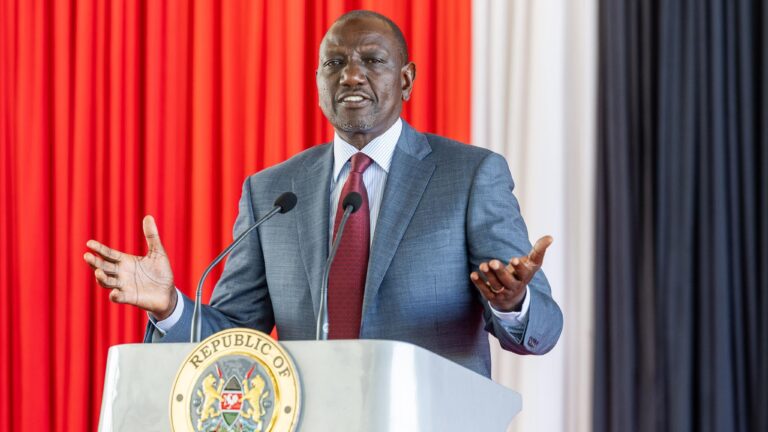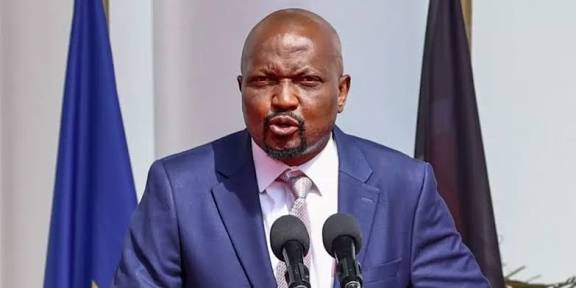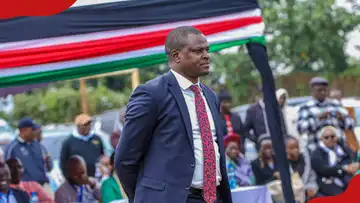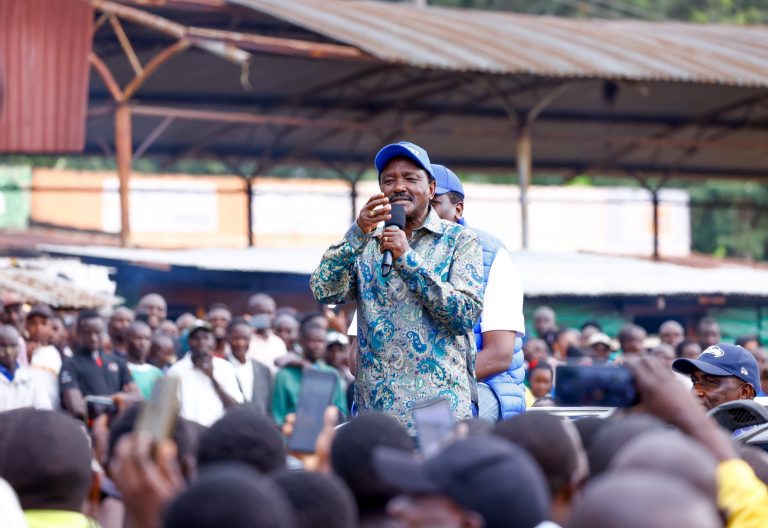
In a dramatic turn just days after the African Growth and Opportunity Act (AGOA) expired, the U.S. government has granted Kenya a one-year extension, President William Ruto announced Saturday. The 25-year trade agreement, which allows Kenyan goods duty-free access to the U.S. market, was crucial to the textile and export manufacturing sectors.
Speaking in Vihiga County, President Ruto confirmed that his recent visit to the U.S. played a pivotal role in securing the extension. He said the decision offers temporary relief to Kenyan exporters while negotiations for a long-term bilateral trade framework begin.
“This extension preserves market access for our textile, apparel, and agricultural products,” Ruto told residents. “Simultaneously, we will push for a bilateral trade agreement to provide stability for exporters and reduce dependency on annual renewals.”
What AGOA Means—and What Its Lapse Threatened
AGOA allowed over 1,800 Kenyan products to enter U.S. markets duty-free, significantly boosting the nation’s garments, horticulture, and coffee sectors. During its peak, the agreement supported tens of thousands of jobs across Kenya, particularly in export processing zones.
When the relationship expired on September 30, 2025, fears erupted across industry. Many exporters faced the prospect of sudden tariffs, reduced competitiveness, and mass layoffs in the apparel sector. Analysts warned that the lapse could upset Kenya’s gains in foreign exchange earnings and investor confidence.
One Year Extension: Temporary Relief or Strategic Pause?
Though the extension is a lifeline, it is also limited. Importers and manufacturers now face uncertainty—if the agreement lapses again next year, they may be exposed to returning tariffs and trade retaliation. Critics argue that a one-year window is not enough certainty for long-term investments.
Ruto acknowledged this vulnerability, revealing that his government has already initiated fresh talks with the U.S. to establish a bilateral trade agreement. This move aims to anchor market access beyond AGOA and protect Kenya’s export sectors from unpredictable renewals.
The Fallout: Jobs, Industry, and Political Pressure
- Textile & Apparel sector: Factories that had suspended expansion plans can now operate, but many must continue at caution. Layoffs that were imminent will likely be delayed—but not entirely avoided if uncertainty persists.
- Investor confidence: The extension signals that Kenya remains a viable export destination, which can preserve inbound investment flows in manufacturing.
- Political win or gamble: For Ruto, the extension is a public relations victory. But failure to secure long-term assurances may erode this gain ahead of the 2027 election cycle.
- Regional dynamics: Kenya’s ability to retain AGOA benefits while neighboring states scramble for trade assurances may tilt regional investment patterns.







